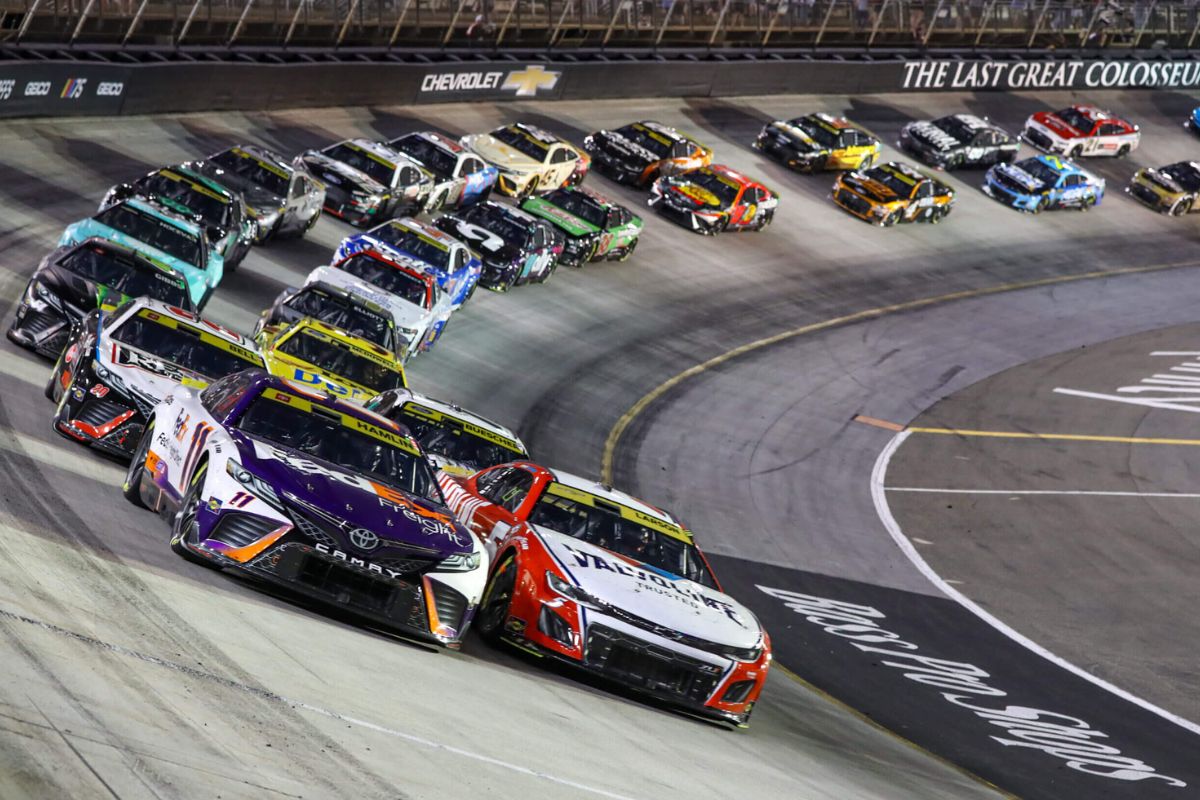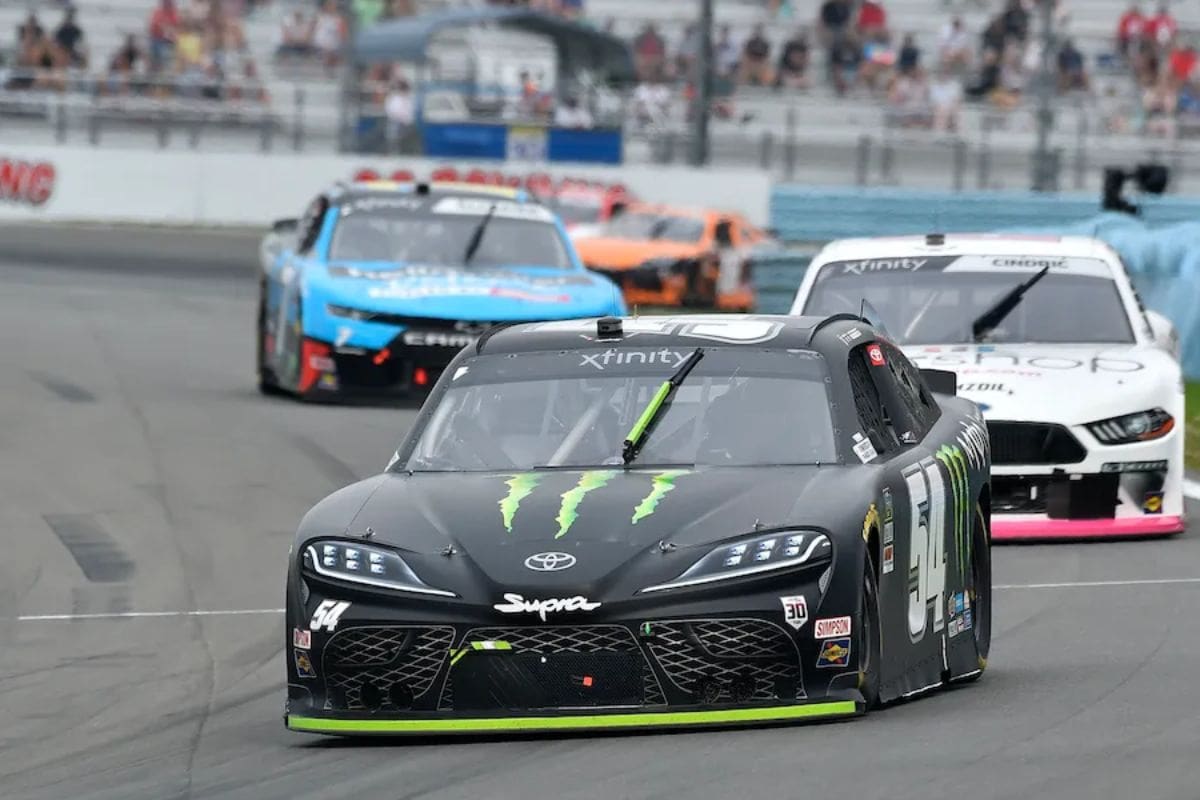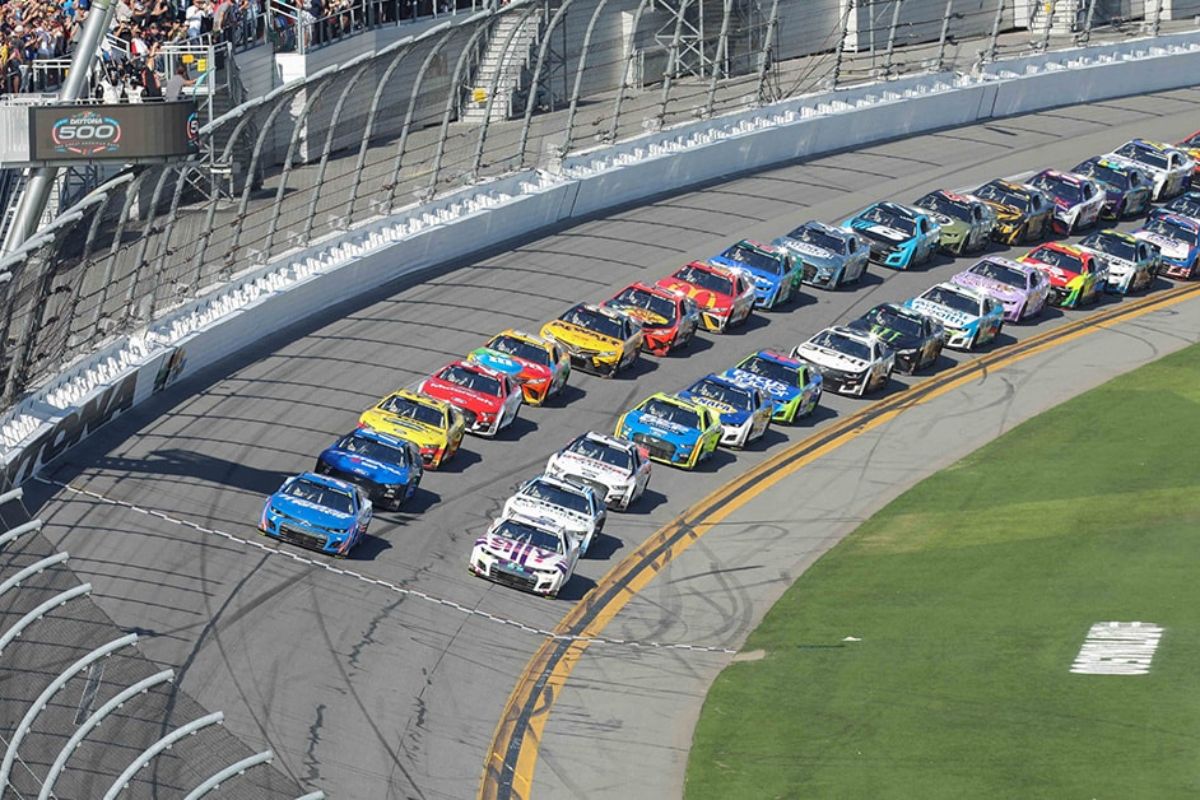Denny Hamlin Slams NASCAR’s 7 Billion Dollar Agenda: Denny Hamlin‘s recent criticisms of NASCAR’s $7 billion media rights deal highlight a growing concern within the sport regarding financial equity among teams. While the substantial influx of revenue may seem advantageous, Hamlin argues that the distribution model may exacerbate existing disparities, particularly for smaller teams struggling to compete. His call for a reevaluation of resource allocation raises crucial questions about the long-term sustainability and competitiveness of NASCAR as a whole. As the implications of this deal unfold, one must consider whether the current framework can truly support a balanced racing environment.
Key Highlights
- Denny Hamlin criticizes NASCAR’s governance for prioritizing financial gains over the interests of teams and drivers.
- He highlights a misalignment between NASCAR’s financial strategies and the competitive needs of smaller teams.
- The $7 billion media rights deal raises concerns about equitable distribution of funds among teams, risking competitiveness.
- Hamlin emphasizes the importance of empowering teams to ensure financial benefits translate into improved competitive balance.
- Disparities in funding could widen performance gaps, threatening fan engagement and the overall health of motorsports.
Fan Frustration After the Michigan Race Delay
The recent delays during the FireKeepers Casino 400 at Michigan have sparked considerable frustration among fans, emphasizing a growing concern over race scheduling in NASCAR. The postponement of the event, which ultimately shifted to a Monday, left many ticket holders unable to attend due to work and personal commitments. This scenario raises critical questions about the effectiveness of current scheduling strategies and their alignment with fan interests.
While some fans propose starting races earlier as a straightforward solution, the intricacies of NASCAR’s operational framework complicate this issue. Stakeholders, including television broadcasters, NASCAR officials, and team owners, each wield considerable influence, often prioritizing financial considerations over logistical efficiency.
The looming $7 billion television deal exemplifies this tension, as networks seek ideal time slots that enhance viewership, consequently affecting when races are held.
Moreover, the frustration expressed by fans highlights a disconnect between the sport’s decision-makers and its audience. The inability to accommodate fan accessibility not only diminishes the race experience but also risks alienating a dedicated supporter base.
As races draw considerable attendance and viewership, it is vital for NASCAR to reassess its scheduling practices in consideration of fan engagement and satisfaction.
Denny Hamlin’s Stance on Starting Races Earlier
Advocating for earlier race start times presents a complex dilemma for Denny Hamlin, who balances his role as a driver with that of a team owner for 23XI Racing.
Hamlin’s insights reveal a fundamental disconnect between the interests of NASCAR and those of the teams. When questioned about the potential benefits of starting races earlier—specifically, to improve fan attendance—Hamlin articulated a clear stance: the financial implications for teams cannot be overlooked.
In a discussion with Jared Allen from Dirty Mo Media, Hamlin emphasized that NASCAR’s priorities are primarily focused on maximizing revenue from media rights. This revenue is critical for NASCAR, as it retains the funds generated from broadcasting deals.
“Well, this is where the interests of the teams and NASCAR do not align.“
“For us as teams, which is what we’ve been saying for years and years and years, we’re so sponsorship-based.” – hamlin
Conversely, team owners like Hamlin rely heavily on sponsorships, which can be jeopardized by changes to race schedules. The crux of the issue lies in how earlier start times could compromise the teams’ financial viability.
View this post on Instagram
Hamlin’s assertion that “the interests of the teams and NASCAR do not align” encapsulates the ongoing tension within the sport. While fans may desire earlier races for logistical convenience, the economic realities for team owners present considerable roadblocks.
Challenges of Shifting Race Start Times
Shifting race start times in NASCAR introduces considerable challenges that extend beyond mere scheduling adjustments. The frequent changes in start times can lead to confusion among fans, a situation articulated by Denny Hamlin, who emphasized the difficulties he faces in keeping track of when and where races are broadcast.
“There are many times when I’m like, ‘Where do I need to record? Like, where?’ because I like to come back home and watch, and I’m trying to figure out what time and where, right? This can’t be easy.” – hamlin
This confusion is compounded when NASCAR alternates between different broadcasting networks, as these shifts often come with varying time slots. Such inconsistency can alienate casual viewers who may not have the dedication to navigate the complexities of the schedule.
Moreover, the impact on viewership is notable. With a constantly changing media landscape, the challenge lies in maintaining fan engagement and ensuring accessibility to races. While some dedicated fans manage to stay informed, Hamlin pointed out that they represent only a fraction of the complete audience.
The lack of a cohesive, easily interpretable schedule risks losing potential viewers who might otherwise be inclined to watch.
Furthermore, the logistical implications for teams and broadcasters cannot be overlooked. Adjusting race start times can disrupt travel plans, practice schedules, and ultimately, the performance of the drivers.
The need for a more standardized approach to scheduling could improve the complete experience for fans and participants as well, fostering a more robust, engaged NASCAR community. In this situation, the conversation around race start times becomes not just a scheduling issue, but a critical factor in the sport’s long-term viability and viewer loyalty.
NASCAR’s Media Rights Deal and Its Impact
NASCAR’s recent $7 billion media rights deal marks a groundbreaking moment for the sport, promising considerable financial benefits and tactical partnerships with major broadcasters such as FOX, NBC, Amazon, and Warner Bros. This arrangement is poised to introduce a notable influx of capital into the NASCAR ecosystem, with funds allocated to teams, tracks, and diverse operational aspects.
However, the implications of this deal extend beyond mere financial gains; they prompt a reevaluation of the alignment between the interests of teams, drivers, and the governing body.
Denny Hamlin’s critique highlights a critical concern: the divergence of goals within the NASCAR community. While the media rights deal heralds a new era of revenue generation, it raises questions about whether the distribution model effectively addresses the needs and aspirations of individual teams and drivers. The potential for increased funding exists, but the actual allocation may not resonate with the grassroots level of the sport.
Hamlin’s observations suggest that a lack of synergy between NASCAR’s leadership and its competitors could hinder the sport’s evolution. As the media landscape transforms, so too must the strategies that govern the distribution of these newfound resources.
For NASCAR to capitalize on this lucrative deal, it must foster an environment where teams feel empowered and valued, ensuring that the financial windfall translates into competitive equity and long-term sustainability.
The Difference Between NASCAR and IndyCar Funding
In contrast to NASCAR, IndyCar‘s funding model presents a distinct reliance on sponsorships, fundamentally shaping the financial landscape for teams within each series. Denny Hamlin highlights a crucial divergence in how these two motorsport entities secure their operational finances.
While IndyCar teams operate almost entirely dependent on sponsorships, NASCAR teams benefit from a dual income stream that includes both sponsorship dollars and financial support from the governing body.
This disparity is crucial. In NASCAR, the infusion of funds from television contracts provides a level of financial stability that is not as readily available to IndyCar teams. Hamlin’s observation that NASCAR teams wish for every race to air on major networks like Fox or NBC emphasizes the importance of media rights in NASCAR’s economic framework. The television deal improves revenue and allows teams to depend less on direct sponsorship, giving them more flexibility in their operational strategies.
“We wish every race was on Fox or NBC, the big network. That’s what they do with IndyCar, right?” – hamlin
Conversely, IndyCar’s reliance on sponsorship means that teams must work hard to secure financial backing independently, which can lead to noticeable variances in funding and capabilities among teams. This reliance can also create challenges in promoting a consistent competitive field, as smaller teams may struggle to attract the necessary sponsorships to remain viable.
Ultimately, the funding models of NASCAR and IndyCar demonstrate two contrasting approaches to financial sustainability in motorsport, with notable implications for team operations, competitiveness, and the broader economics of each racing series.
News in Brief: Denny Hamlin Slams NASCAR’s 7 Billion Dollar Agenda
Denny Hamlin’s critique of NASCAR’s $7 billion media rights deal highlights a notable concern regarding the equitable distribution of financial resources within the sport. The disparity between larger and smaller teams may hinder competitiveness, ultimately impacting the complete integrity of racing. A reevaluation of funding allocation is necessary to guarantee that all teams can benefit from the financial influx, thereby fostering a more balanced and competitive environment that upholds the spirit of the sport.
ALSO READ: Denny Hamlin’s Bold Prediction: Tyler Reddick to Steer His Legacy Toward Championship Glory




